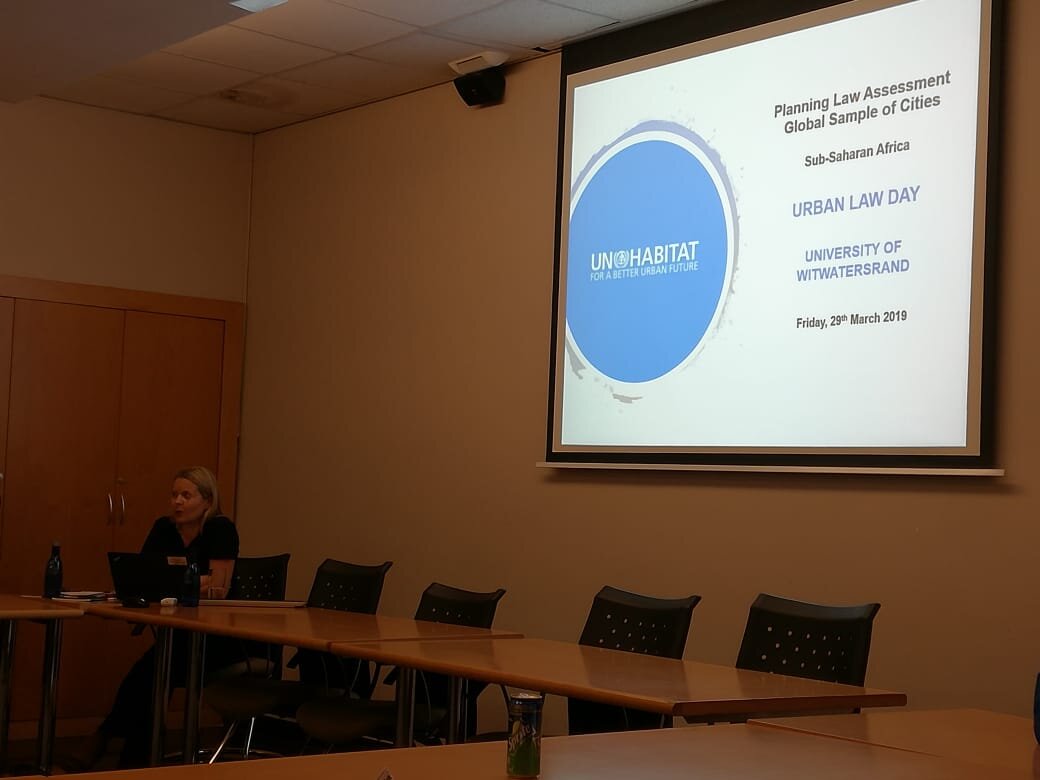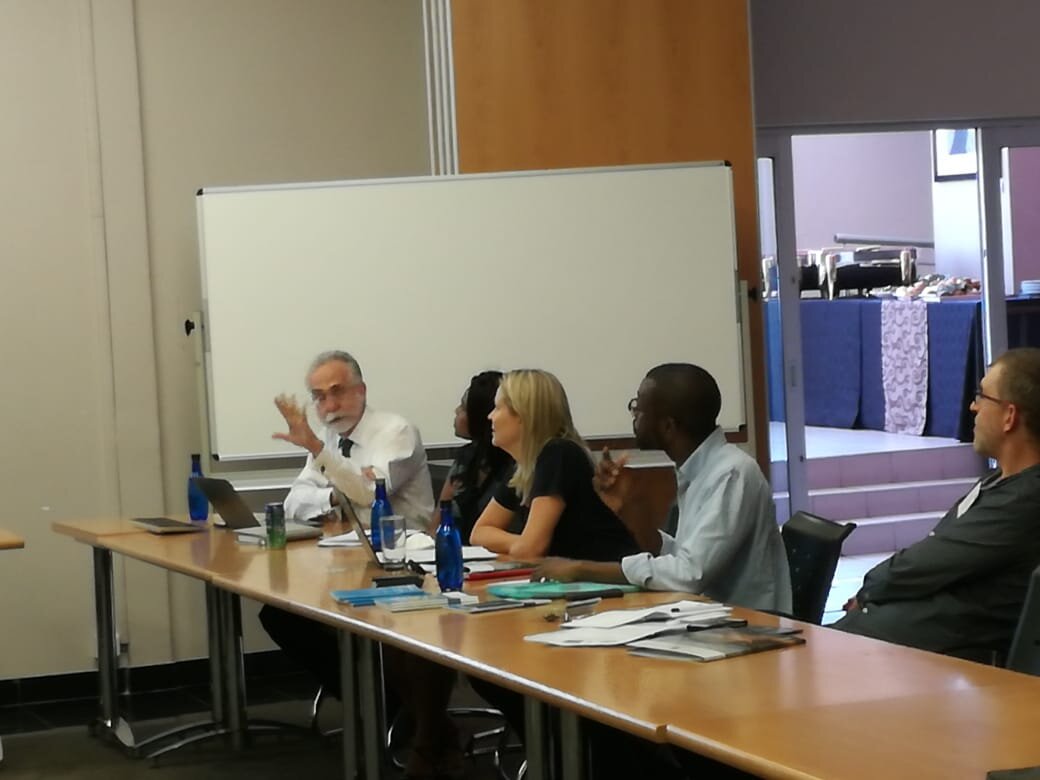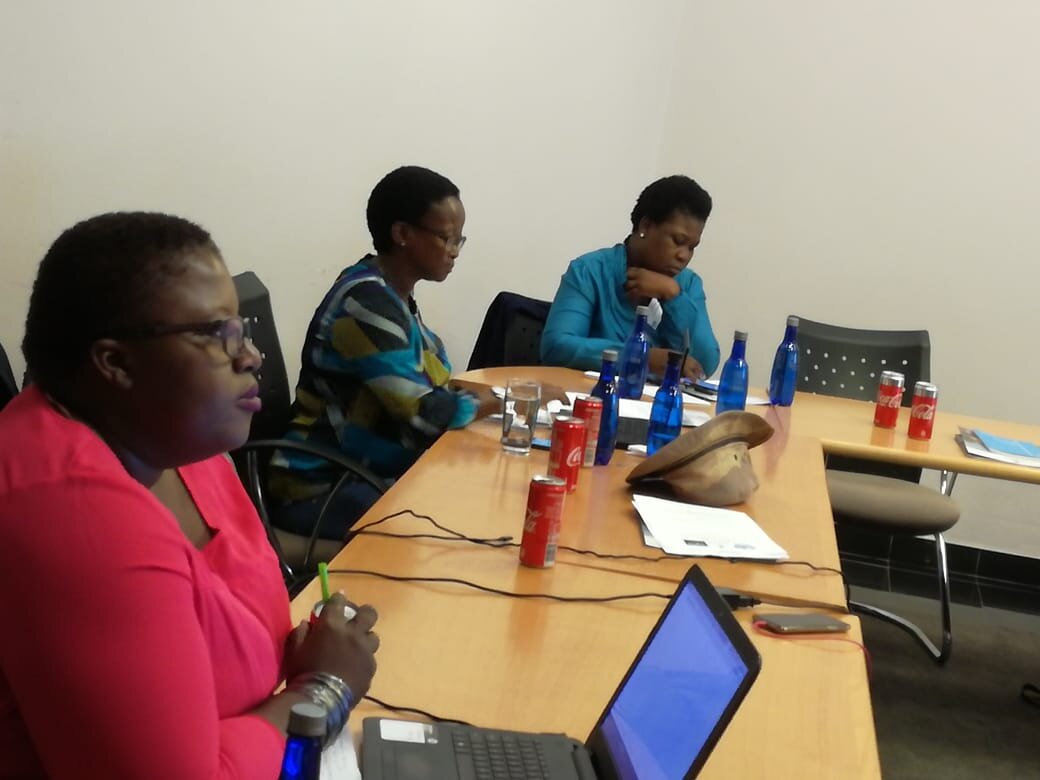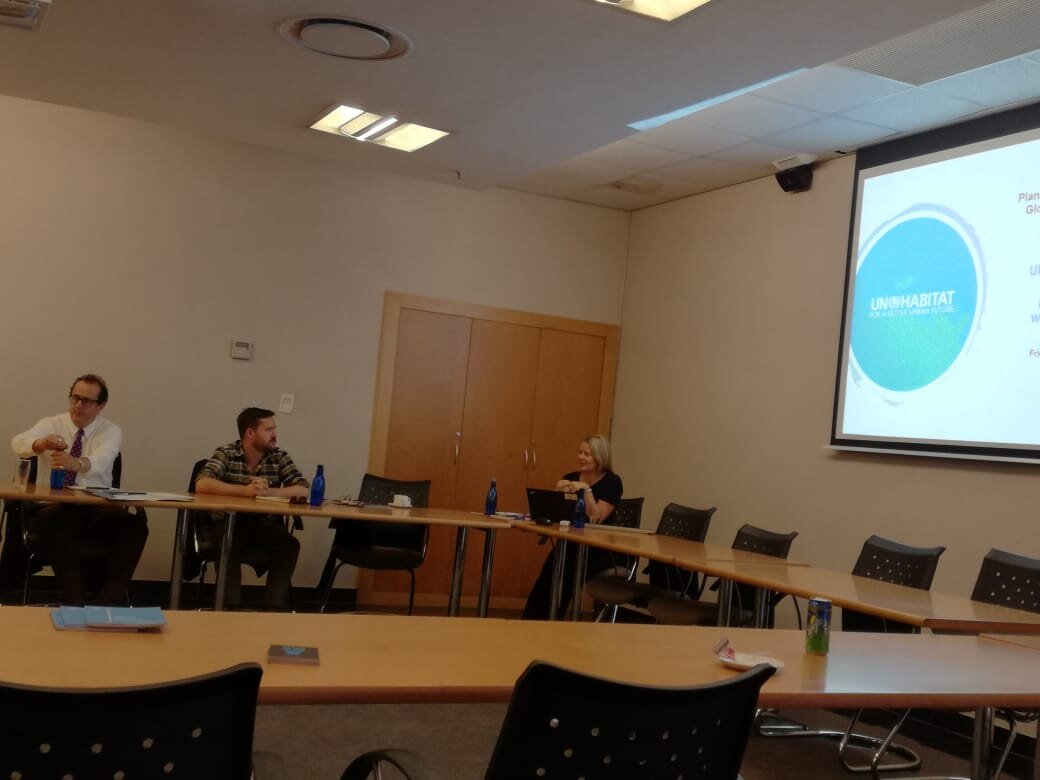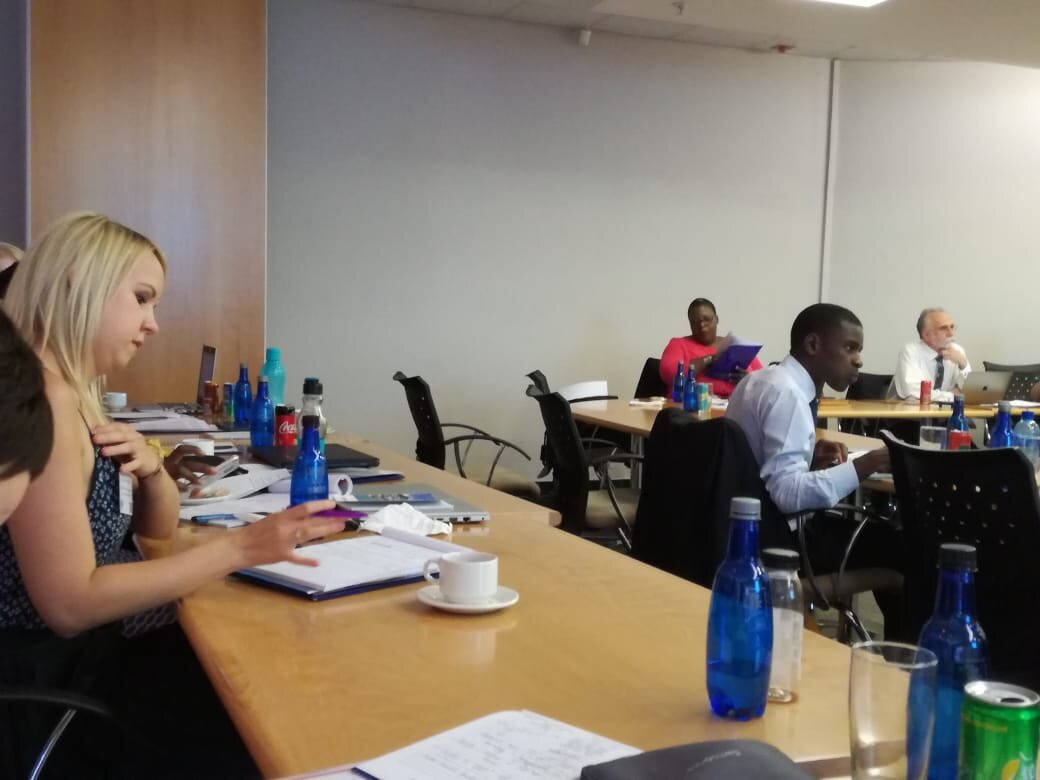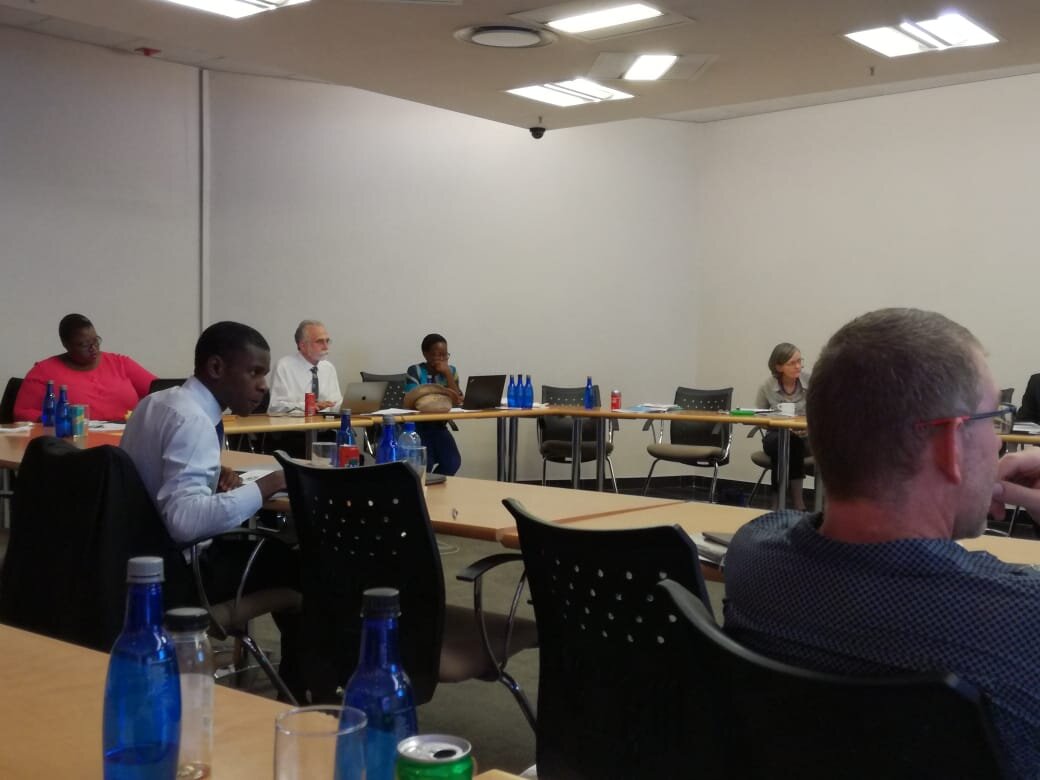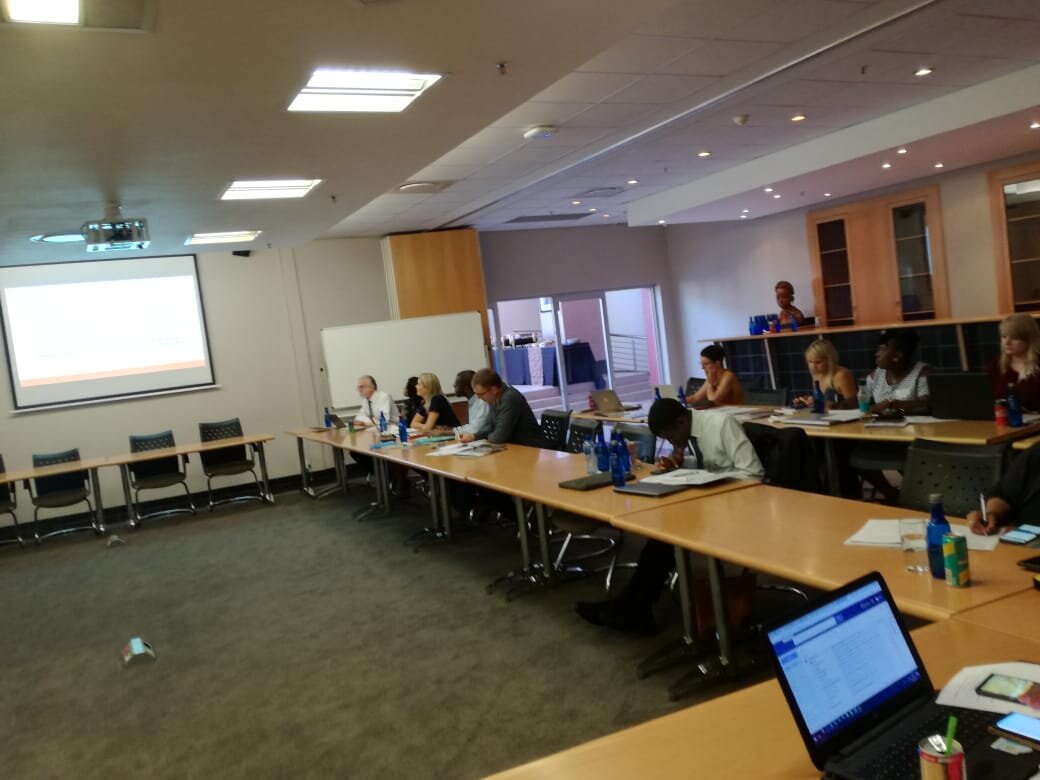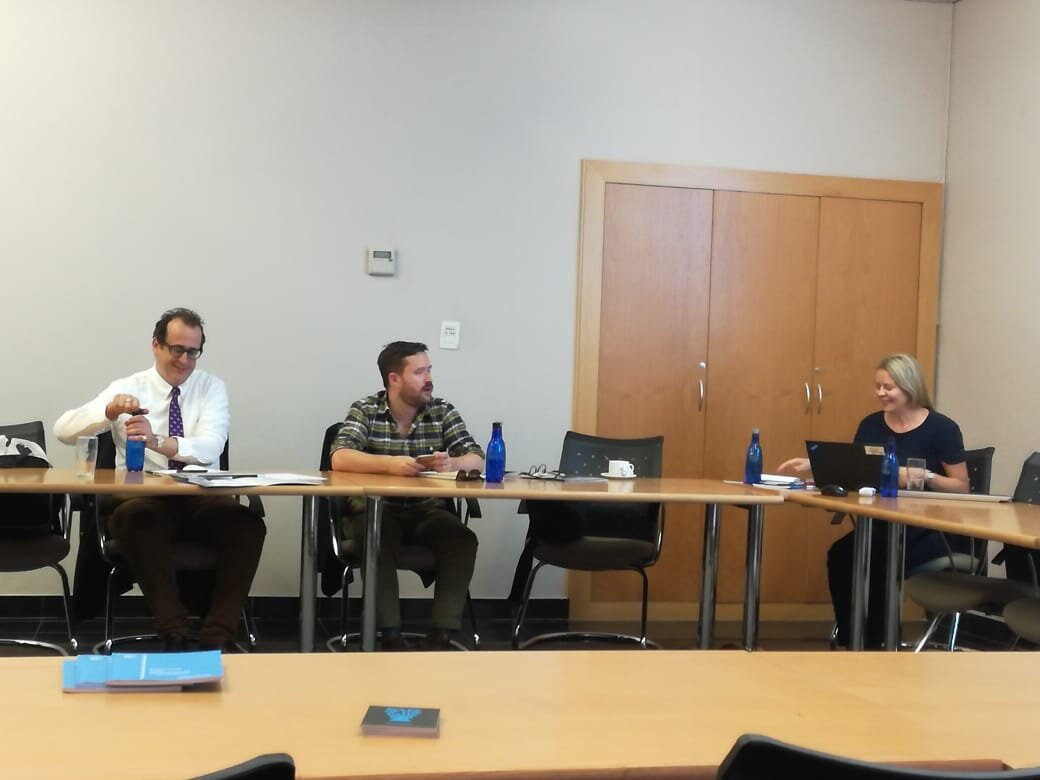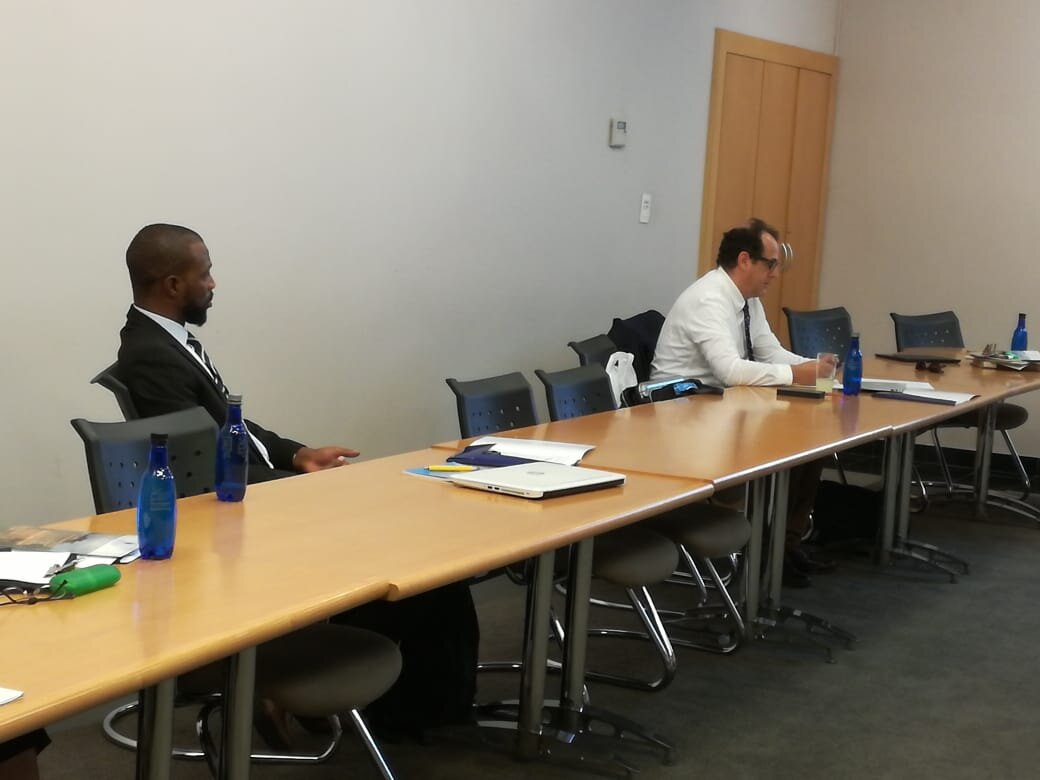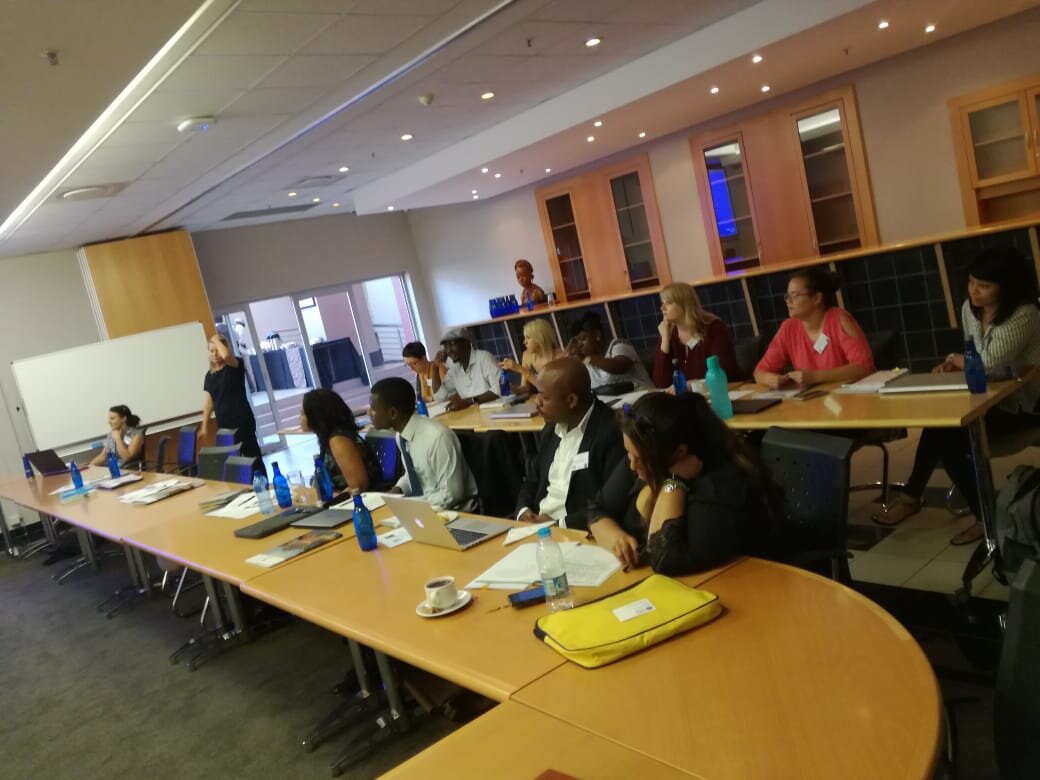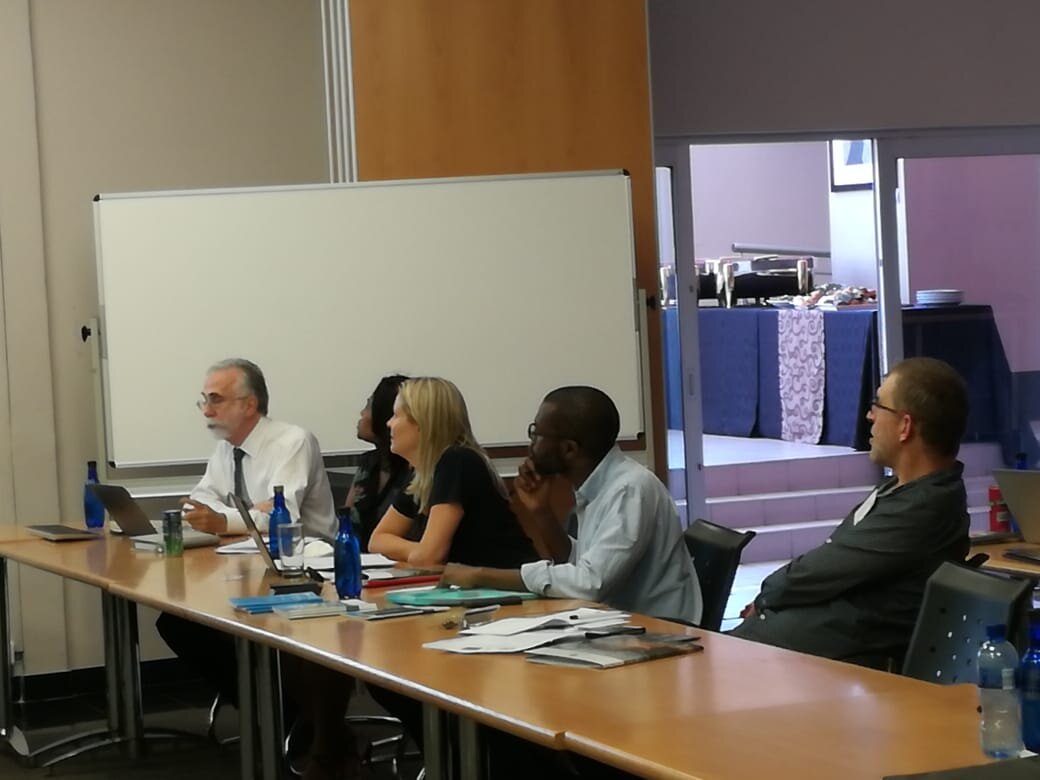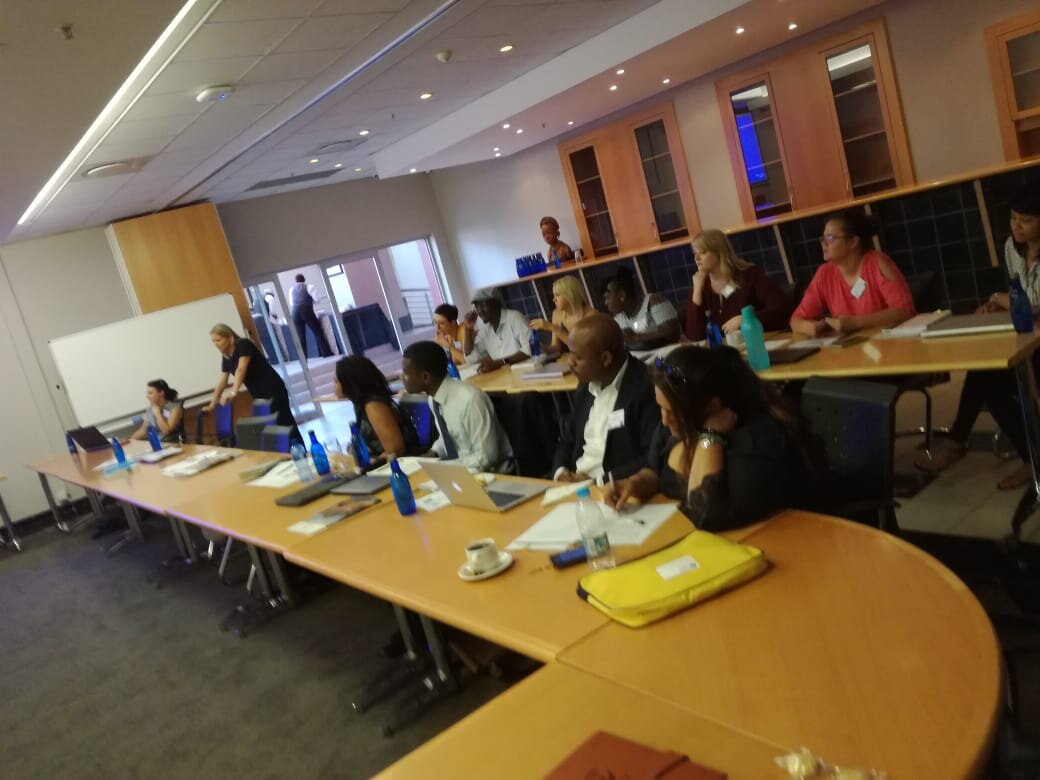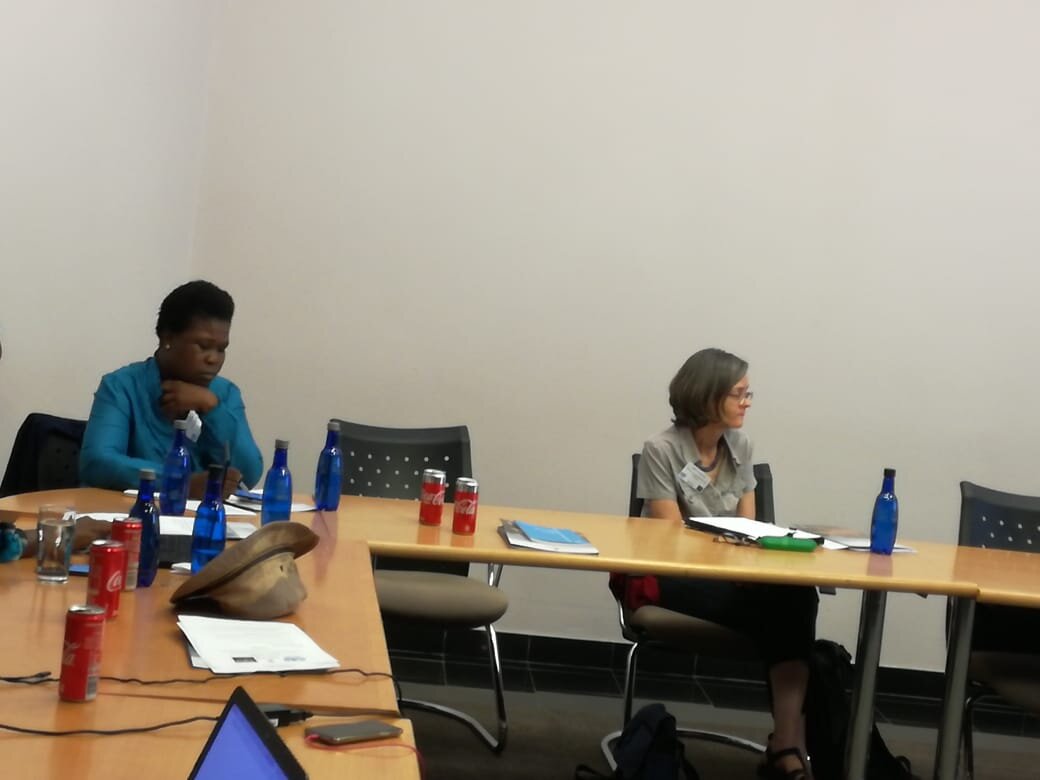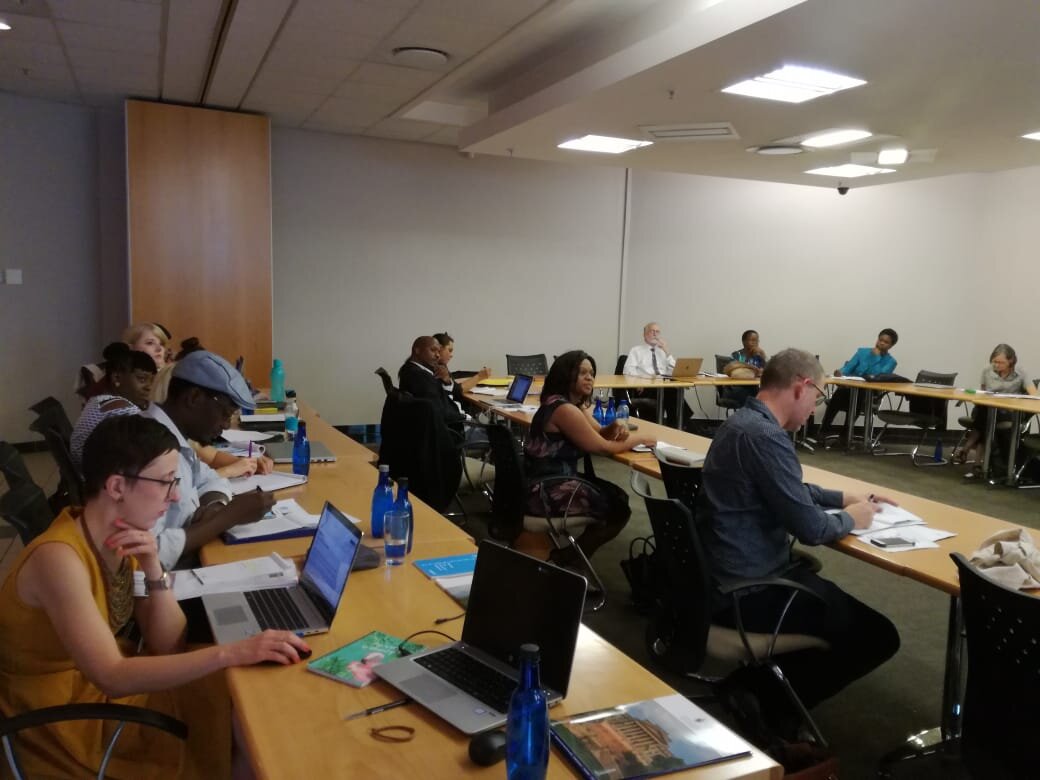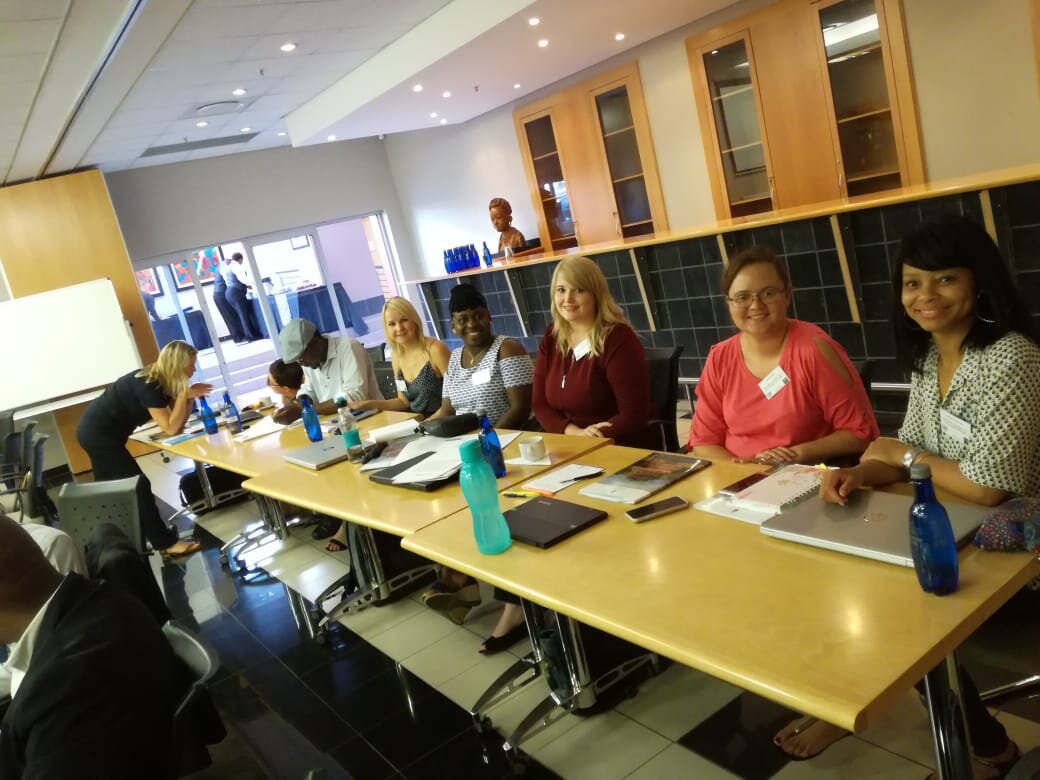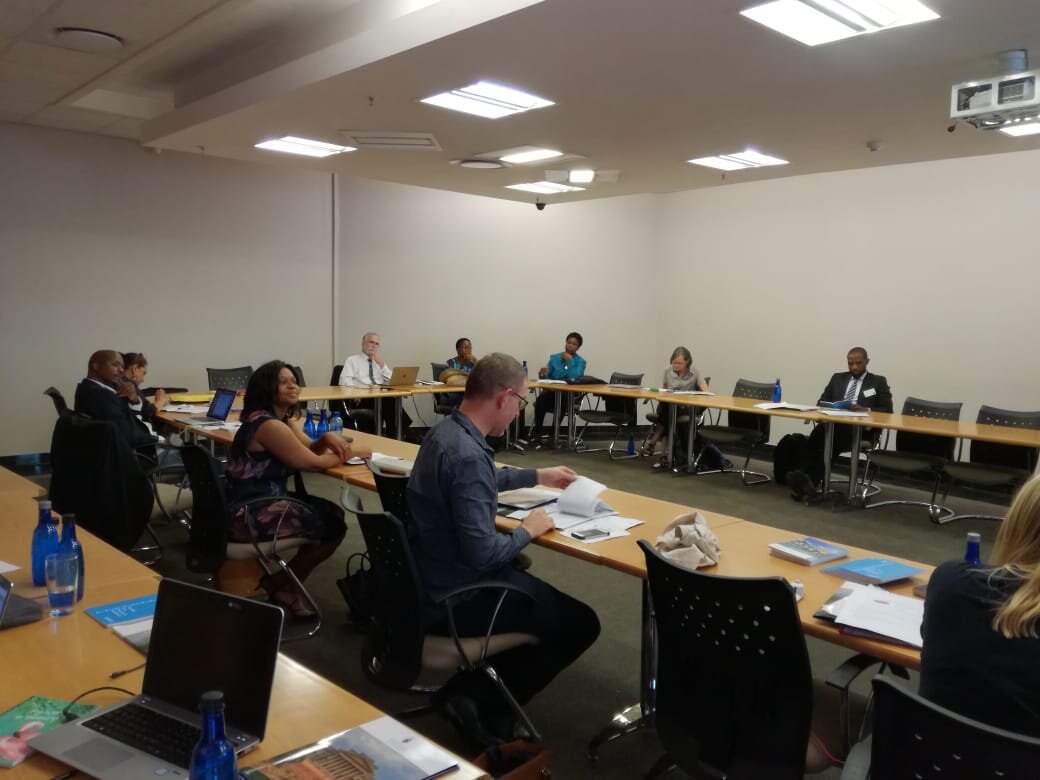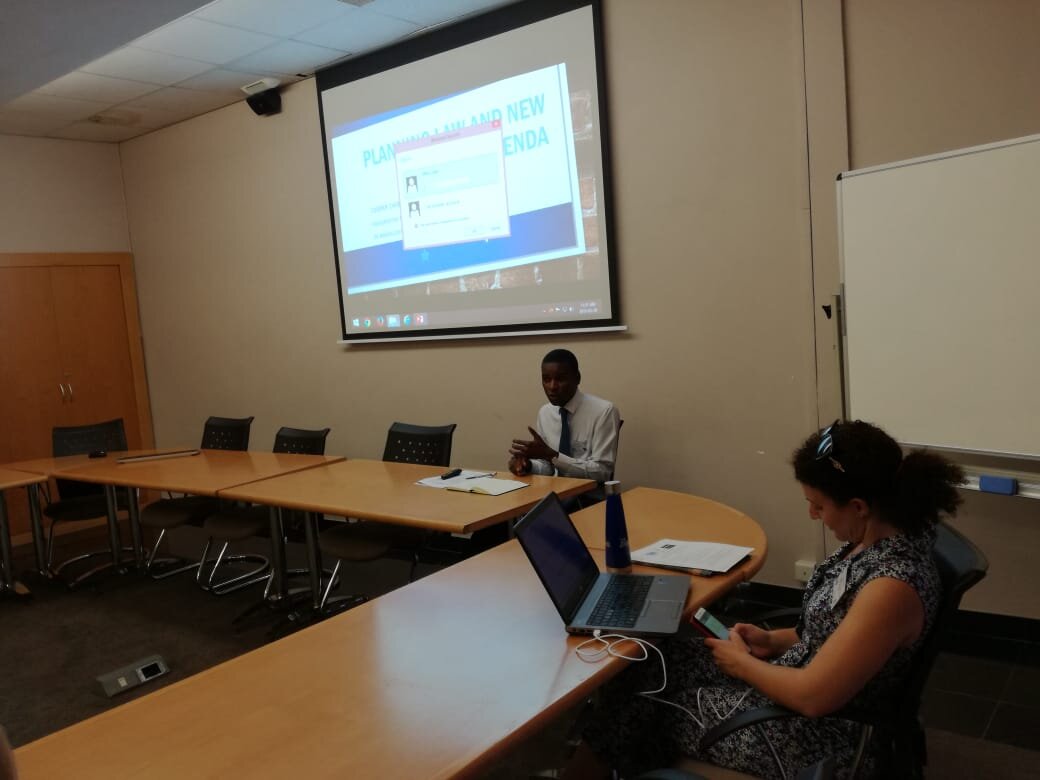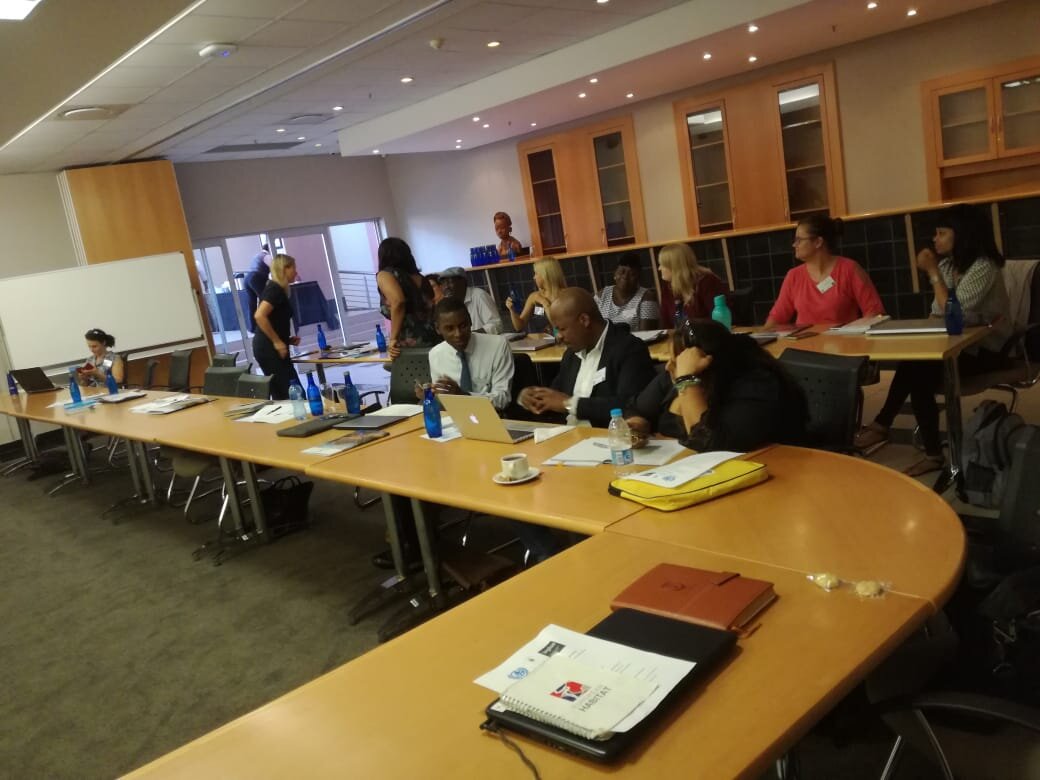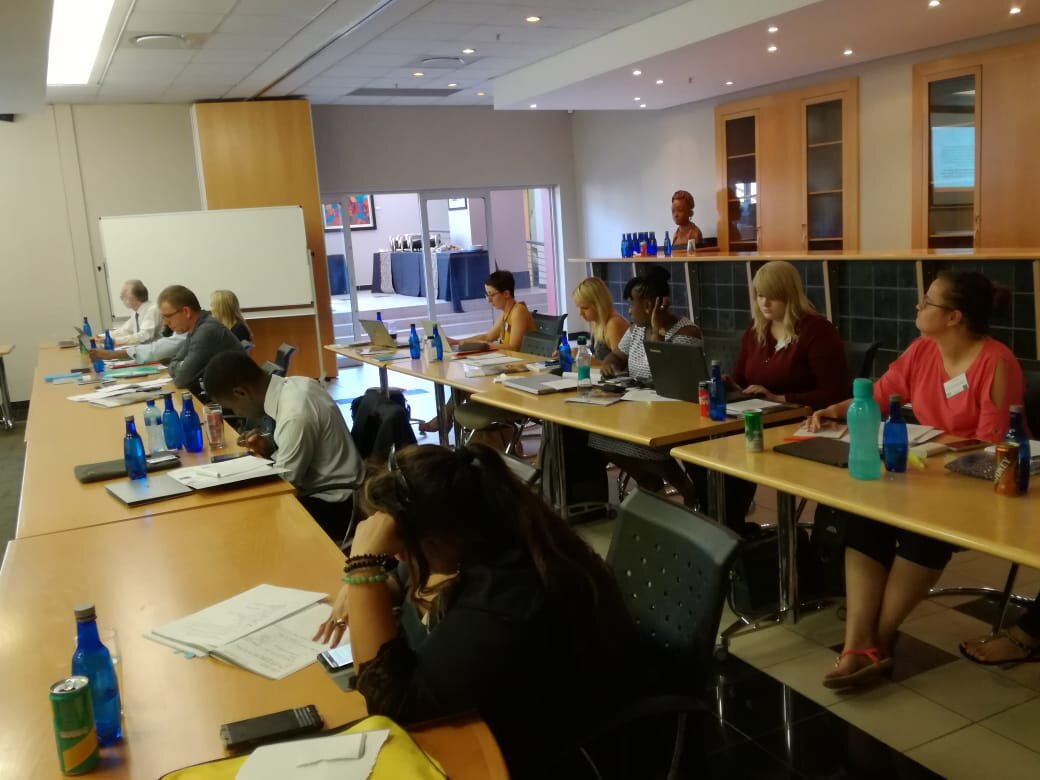Johannesburg, March 2019 |
UN HABITAT, URBAN LAW DAY
Law, the New Urban Agenda, and Sustainable Cities
IRGLUS joined the School of Law at the University of the Witwatersrand and the UN-Habitat Urban Legislation Unit in hosting an “Urban Law Day” at the University, in Johannesburg on Friday 29 March 2019. While the Urban Legislation Unit had held several such “urban law days” before, this was the first to take place in the global South.
The theme for the event was “Law, the New Urban Agenda and Sustainable Cities”. The idea for the day was to reflect on the readiness of various aspects of domestic legal and constitutional systems in sub-Saharan Africa for the effective implementation of UN Sustainable Development Goal (‘SDG’) 11 (which calls for safe, sustainable, resilient and inclusive cities) and the associated commitments in the UN New Urban Agenda (‘NUA’).
After words of welcome from professor Wesahl Domingo (head of the School of Law) and Mr Robert Lewis-Lettington (chief of the UN-Habitat Urban Legislation Unit), proceedings kicked off with a presentation by professor Anél du Plessis, SARCHi Chair in Cities, Law and Environmental Sustainability at the North-West University in Potchefstroom, who shared her research on the readiness of South Africa’s legal and policy framework for implementation of SDG11. Reflecting on the nature of implementation cycles, professor Du Plessis showed that this framework enabled compliance with all of SDG11’s sub-targets, although it lacked both a specific legislative mandate regarding sustainable urbanism, explicit interlinkages between various legal mechanisms and a consistent framework to ensure that cities are operationally sustainable.
The South African overview was followed by assessments of the state of urban law in Malawi, Zimbabwe and Zambia. Justice Zione Ntaba from the High Court of Malawi bemoaned the poor alignment of bureaucratic structures and fiscal autonomy to the constitutional and legislative demarcation of local government responsibilities in Malawi, and also noted that the incongruence of Malawian urban law - with laws, policy frameworks and bylaws from different eras and with different purposes seemingly pulling in different directions – complicated the coherent pursuit of the NUA’s aspirations.
Justice Ntaba further hinted that some of the NUA’s underlying assumptions were out of step with the reality of developing world cities, a view shared by Mr Archimedes Muzenda from the African Urban Institute. Relating how Zimbabwean local authorities have been too occupied with ‘crisis management’-style governance to effectively pursue the NUA’s objectives, Mr Muzenda showed that the realities of informality, economic strain and politically divided authority detracted not only from cities’ ability to pursue the NUA, but also lead to a chasm between ‘official’ legal structures and their functioning ‘on the ground’. He further emphasized the pernicious consequences of party-political struggles on urban governance, illustrating how opposition-run cities’ legal and functional powers have consistently been complicated by actions of the Zimbabwean national government.
According to Mr Cooper Chibomba, president of the Zambian Institute of Planners and associate of the University of Zambia’s Centre for Urban Research and Planning, an effective solution for some of the problems highlighted by Mr Muzenda is to source planning, land use management and related urban governance powers in constitutionally ensconced autonomous local government. In Zambia, Mr Chibomba showed, legal internalization of the SDGs and the NUA coincided with a process of constitutional amendment, leading to Zambian structures of government having been explicitly aligned to these instruments. While Zambian local governments thus enjoy enhanced autonomy and guaranteed access to state resources regardless of political affiliation, and function under an explicit developmental mandate, Mr Chibomba felt that the law nevertheless did not sufficiently enable meaningful public participation in urban governance and also underemphasized the importance of urban land, specifically in relation to mediating between statutory and customary land management regimes.
Mr Chibomba’s concerns over land law and public participation were echoed by other participants, many of whom also emphasized that the timeframe for achieving the goals of SDG11 and the NUA (which both envisage compliance by 2030) was too short, especially given the inevitable ‘lag’ between the conceptualization, adoption and full implementation of laws. A further common concern was the state of local government bylaws, which appeared painfully underutilized and out of step not only with the NUA and SDG11, but also with countries’ national urban law frameworks.
After lunch, the focus shifted to municipal finance law, with Dr Matthew Glasser of the Centre for Urban Law and Finance in Africa commending the NUA for its commitment to ensuring that implementation of its substantive targets are appropriately resourced. Taking a critical look at typical local government revenue sources (such as central government grants, service charges, property taxes and borrowing), Dr Glasser warned that financial structures may have the effect of perversely incentivizing cities to develop in ways that frustrate the NUA’s goals, such as when they effectively render sprawling developments more lucrative. Related to this, Dr Glasser emphasized that cities’ built form is ultimately shaped by private capital, the public regulation of which is typically not adequate in most societies.
Many of Dr Glasser’s warnings were borne out by Mr Danga Mughogho, manager of the South African Cities Network (‘SACN’)’s Well-governed Cities Programme, who presented a synopsis of the SACN’s recent ‘State of City Finances’ report. With the central message that both South African cities and their inhabitants are experiencing financial crisis, the report revealed a worrying regressive trend in South African urban municipal service tariff structures. Mr Mughogho also showed that, while South African cities generate enough revenue to fund their operating expenditure, there are insufficient funds to also cover capital expenditure, including essential infrastructure maintenance costs.
In the final session of the day, Mr Lewis-Lettington and Ms. Anne Klen-Amin of the Urban Legislation Unit launched the outcome of a Planning Law Survey conducted by the Unit for the Sub-Saharan Region of the UN Global Sample of Cities. The survey revealed that most of the cities sampled were sprawled beyond their urban development boundaries (which were already disproportionately large compared to need), and functioned at sub-optimum density levels. The survey further revealed important human resource and administrative capacity-shortcomings in the planning departments of most sub-Saharan African cities. For example, the number of plans legally required typically far exceeded the number of planners available to cities, with the result that important parts of planning systems were dysfunctional in a significant majority of cities surveyed. Other key findings suggested by the survey included that processes for land acquisition for public purposes tended to be poorly recorded across the region, and that administrative action appeared to be the predominant mode of development planning standard enforcement.
Overall, the information-packed Urban Law Day certainly succeeded in its aim to stimulate discussion over ways to address shortcomings in existing legal frameworks, as well as related challenges of ‘localizing’, ‘legalizing’ and implementing the commitments of SDG11 and the NUA.
